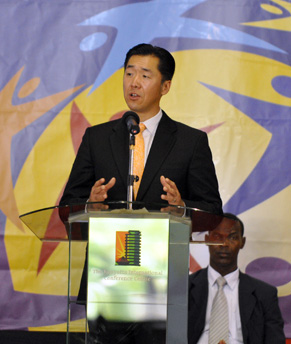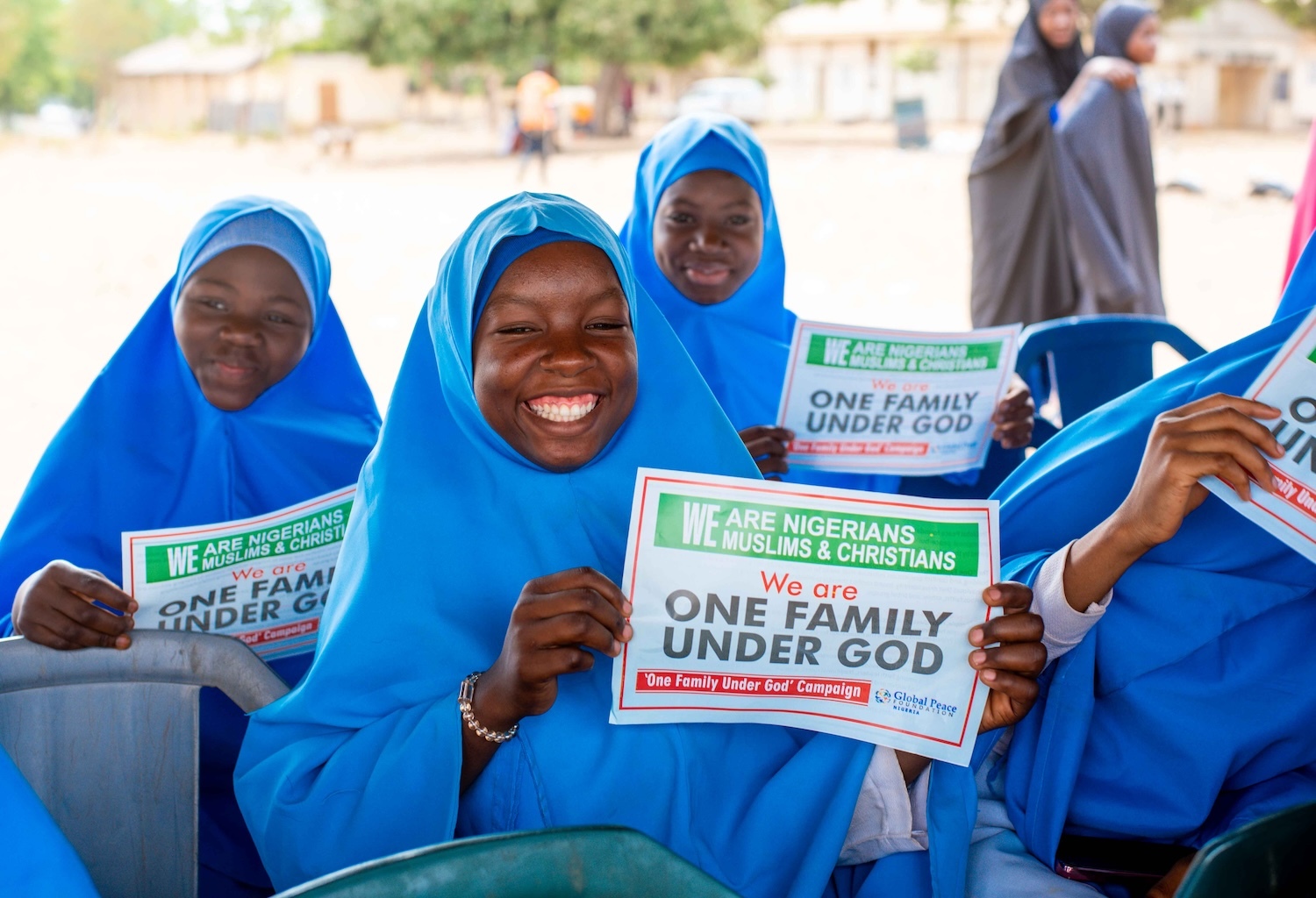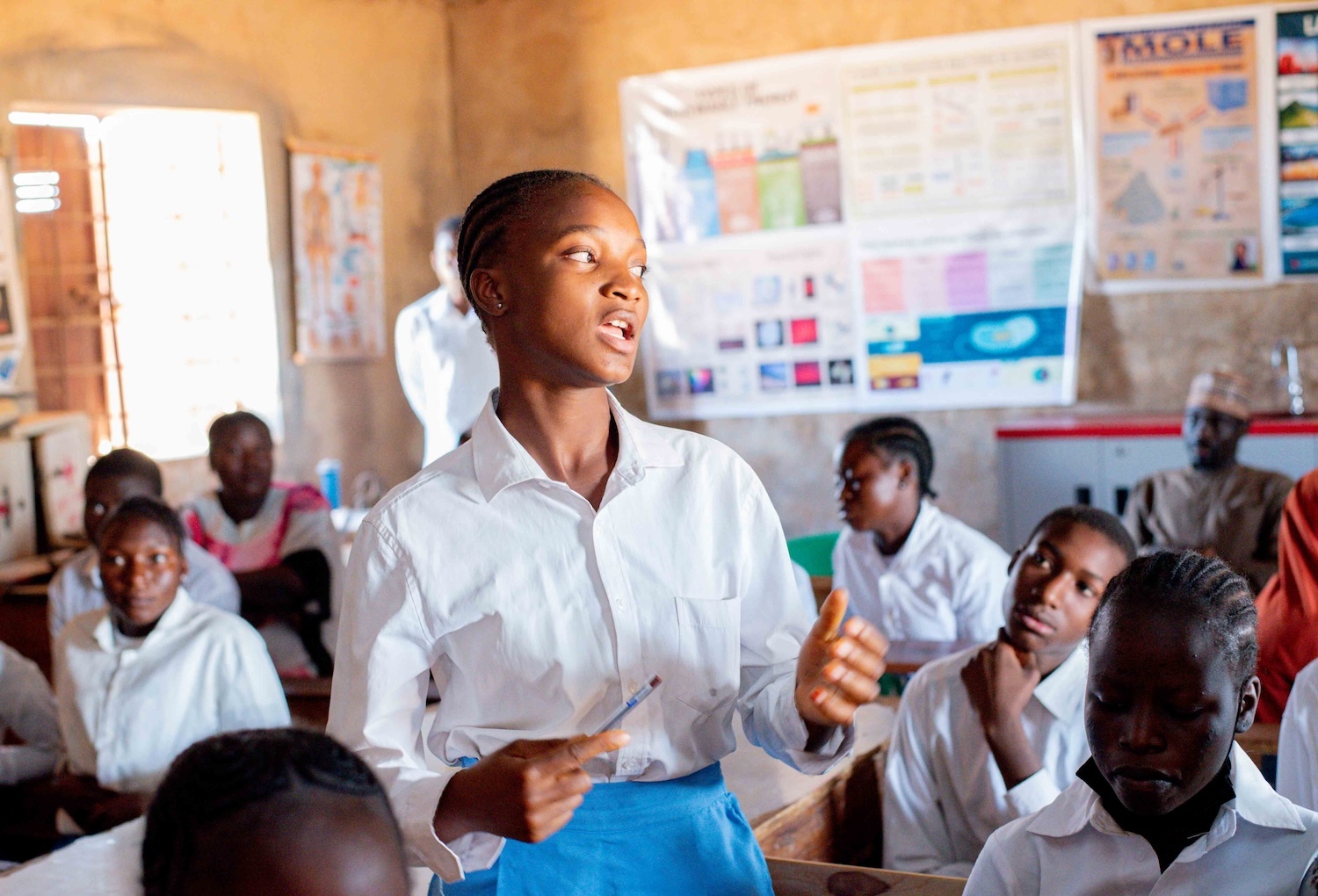
Dr. Hyun Jin Moon at the opening of the GPC in Nairobi.
NAIROBI, Kenya – “This is an age in which Africans can lead in ways unimagined before,” GPF chairman Dr. Hyun Jin Moon told the more than 1,000 participants at the opening of the Global Peace Convention in Nairobi. Those present included Kenyan President Mwai Kibaki, who as Patron of the Convention formally opened proceedings, Vice-President Kalonzo Musyoka, Prime Minister Raila Odinga, Ethiopian President Girma Wolde-Giorgis, and 17 members of the Kenyan Cabinet.
Dr. Moon congratulated President Kibaki and Prime Minister Odinga on Kenya’s new Constitution, signed into law on August 27th. “It suggests that Kenyans are a people of principles and values who are willing to break away from Africa’s historic struggle with corruption, conflict and poverty, and create a new precedent for the continent,” he said.
He particularly commended the Constitution for recognizing “the sovereignty of God as the source of all fundamental human rights as well as, unabashedly, recognizing the spiritual roots of its national principles and values.”
Saying that the document reflected the collective wisdom of a uniquely African experience, he praised its support for marriage and the sanctity of life in the womb. “Kenya has taken a lead on these social issues, recognizing that they have national and global consequences,” he noted, even while they remain heavily contested in most of the western democracies.
The lesson from this, he observed, was that “this era offers such opportunities for other nations, rich or poor, powerful or weak, to chart their own destinies and be leaders in addressing critical issues that affect the global community.” These opportunities were only heightened by the sluggish recovery of the developed world from the global recession which had called into question the established western models of prosperity and development.
Dr. Moon said that the approach of GPF in the Convention was unique because “we deliberate on concrete approaches to critical issues through the lens of a common spiritual vision rooted in universal principles and values.” Pointing to the social costs of Korea’s development where stellar economic growth has been accompanied by soaring divorce rates and a plummeting birth rate, he urged African nations to “preserve the rich spiritual heritage of Africa’s traditional families and cultures as a necessary foundation for its ‘balanced’ social, political and economic development.”
Greater regional cooperation such as the East African Community, revived this year and looking to create a federal union by 2015, was a key to Africa’s successful development. “2010 should signal a new decade of African leadership from local communities to the national halls of government to the four key regional corners of Africa where a new breed of leaders, motivated by a common vision rooted in universal principles and values, rise to shape the future of this continent,” he declared.
Such regional movements could in turn inject new life into the African Union which would need to be fortified by a shared vision based on principles and values if Africa’s great resources were to be harnessed for the benefit of all its peoples.



